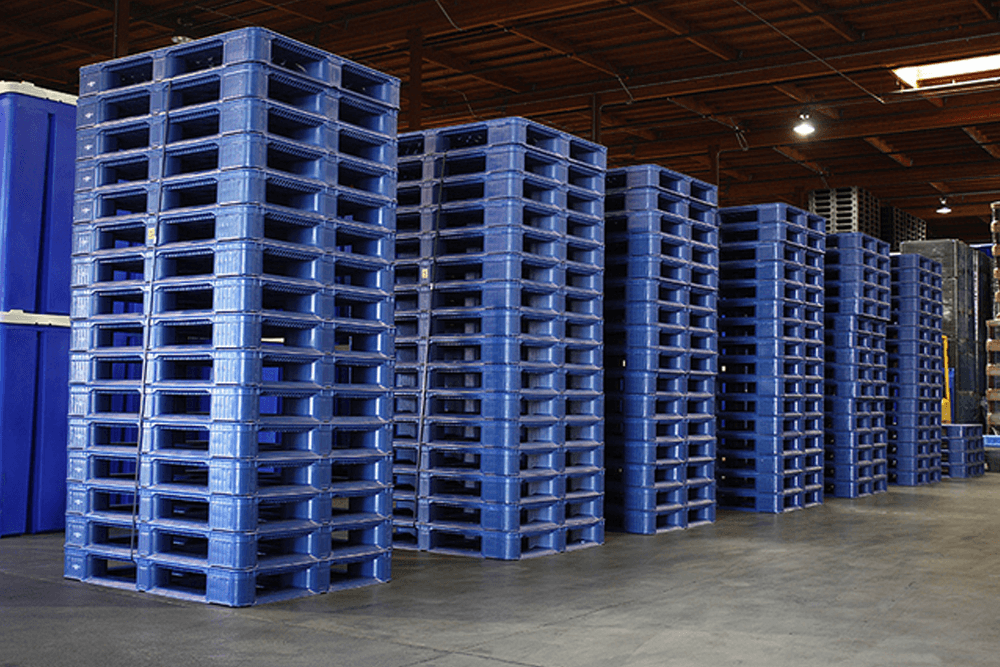Plastic in Logistics: Friend or Foe?
November 28, 2023

Plastic in Logistics: Friend or Foe? This question has been at the forefront of discussions in the world of logistics and supply chain management. In an era of rapidly evolving technologies and environmental consciousness, the use of plastic in logistics operations has garnered considerable attention. Let’s delve into this subject to understand the implications and evaluate whether plastic is a friend or foe in the logistics industry.
The Versatility of Plastic in Logistics
Plastic Packaging: A Key Component
Plastic packaging is an integral part of logistics operations. It’s lightweight, durable, and offers excellent protection for goods during transportation. Products arrive at their destination intact, reducing damage and minimizing the risk of spoilage. Plastic packaging ensures efficiency in the supply chain and helps prevent losses, ultimately benefiting businesses and consumers alike.
Reducing Costs and Waste
Plastic pallets, crates, and containers have revolutionized the way goods are handled in the logistics industry. They are reusable, easy to clean, and require less maintenance compared to traditional wooden pallets. This not only reduces costs but also minimizes waste, making plastic a cost-effective and eco-friendly choice.
Optimizing Space and Weight
Plastic’s lightweight nature is a game-changer in logistics. It allows companies to optimize storage and transportation space, resulting in reduced fuel consumption and carbon emissions. Using plastic to reduce weight also helps in meeting regulatory requirements, leading to cost savings and environmental benefits.
Challenges of Plastic in Logistics
Environmental Concerns
Despite its undeniable advantages, the use of plastic in logistics is not without its downsides. One of the most pressing concerns is the environmental impact of plastic waste. Single-use plastics, such as packaging materials, contribute to pollution, end up in landfills, and harm wildlife. This environmental toll has raised questions about the sustainability of plastic in logistics.
Regulatory Restrictions
Governments and international organizations are taking measures to curb plastic pollution. Many countries have implemented bans on single-use plastics, and regulations are tightening for industries that heavily rely on plastic. These restrictions pose challenges for logistics companies, which must adapt to remain compliant.
Finding a Balance
So, is plastic a friend or foe in logistics? The answer lies in finding a balance. Businesses need to make responsible choices, such as using eco-friendly plastic alternatives and implementing recycling programs. Sustainable logistics practices can mitigate the environmental impact of plastic use while maintaining its cost-effective benefits.
Transitioning to Eco-Friendly Solutions
In recent years, there has been a surge in the development of eco-friendly plastics, such as biodegradable and compostable materials. These alternatives offer the same benefits as traditional plastics but decompose naturally, reducing the long-term impact on the environment. Transitioning to these eco-friendly solutions can help logistics companies maintain efficiency while being environmentally responsible.
Plastic Reduction Initiatives
Several companies in the logistics industry have taken proactive steps to reduce plastic usage. They have embraced reusable packaging, eliminating single-use plastics, and adopted innovative recycling methods. By actively participating in plastic reduction initiatives, they demonstrate that plastic in logistics can indeed be a friend to the environment.
The Role of Technology
Technology plays a pivotal role in addressing the challenges posed by plastic in logistics. Advanced tracking and monitoring systems, powered by the Internet of Things (IoT), allow companies to optimize their packaging, reduce waste, and enhance their environmental footprint. Utilizing data and analytics, logistics providers can make informed decisions that balance cost-efficiency with sustainability.
Plastic in logistics can be both a friend and a foe, depending on how it is used. The logistics industry must adapt to changing times and prioritize sustainable practices. By embracing eco-friendly alternatives, reducing waste, and leveraging technology, businesses can make plastic in logistics a friend that works in harmony with the environment.
In the end, let’s remember that the plastic in logistics debate isn’t about demonizing or eliminating plastic entirely; it’s about making informed choices and striving for a sustainable future.
-By Arti Tawani